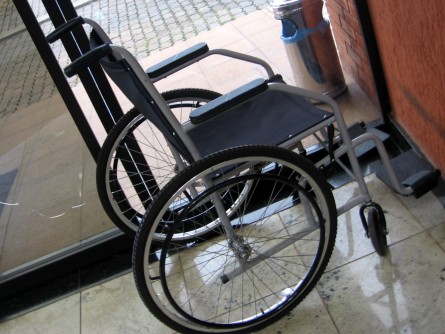There is a point in Rachel Aviv’s New Yorker piece chronicling the widespread cheating on standardized tests that went on in some Georgia schools several years ago where you wonder how much further the author could go to defend teachers who changed students’ answers in order to ensure that they kept their jobs. And then you come upon this line about Darmany Lewis, a math teacher at Parks Middle School in Atlanta, who was caught in the middle of this scandal. “To his mother, his decision to cheat was an act of civil disobedience. She told him that as soon as she heard about cheating in Atlanta she thought, ‘I bet my son was part of that.’”
Civil disobedience. This is the man who sneaked into the padlocked room where the tests were kept, put on gloves to prevent anyone from realizing that the tests had been tampered with, slit open the cellophane with a razor blade, photocopied the questions, and then used a lighter to melt the cellophane back together. People engaged in civil disobedience generally own up to their crimes rather than wait around to be discovered.
But then that would have defeated the purpose of Lewis’s actions. You see, he was fighting the power—the power of No Child Left Behind and the standardized test regime that the law helped to put in place. Lewis worked at a school where the kids were consistently failing. Parks Middle School is in a crime-ridden neighborhood. Lewis tells Aviv that when he was in a convenience store telling his students to go home and do their homework, a prostitute propositioned him. In the face of this crime and poverty, Lewis and the other teachers basically had no choice, as Aviv tells it.
Parks never made AYP (adequate yearly progress) and so the school was in danger of being shut down and the teachers in danger of losing their jobs. At least that’s what Atlanta’s school superintendent Beverly Hall claimed. She was involved in the cheating as well. At any rate, Lewis wasn’t going to stand for that. “I’m not going to let the state slap [the students] in the face and say they’re failures.”
Way to go, Darmany Lewis. Except No Child Left Behind is not about telling students they’re failures. It’s about telling teachers, principals, and schools that they’re failing our students. When Michael Bloomberg tried to close the worst schools in New York, the unions trotted out teachers and parents and students to public hearings to say that the mayor shouldn’t tell students they’re failures. He wasn’t.
Aviv interviews no one who has found how much good teachers and good schools can turn kids lives around. There is no mention of the bad neighborhoods that high performing charter schools like KIPP or Success Academies operate in. No mention of the evidence from researchers like Eric Hanushek that getting rid of even the bottom 5 percent of teachers can have significant impact on student learning and even potential student earnings over the course of an education.
She does quote a former dean of education at Arizona State University, who says, “The people who say poverty is no excuse for low performance are now using teacher accountability as an excuse for doing nothing about poverty.” People who say poverty is no excuse for low performance are people who have seen the results of these charter schools and inner-city Catholic schools—institutions whose teachers truly take responsibility for the students and families they serve rather than making excuses for their low performance. To even suggest that there was something noble in the unethical actions of Darmany Lewis and his colleagues does a disservice to every teacher who finds a way to effectively teach poor children.






